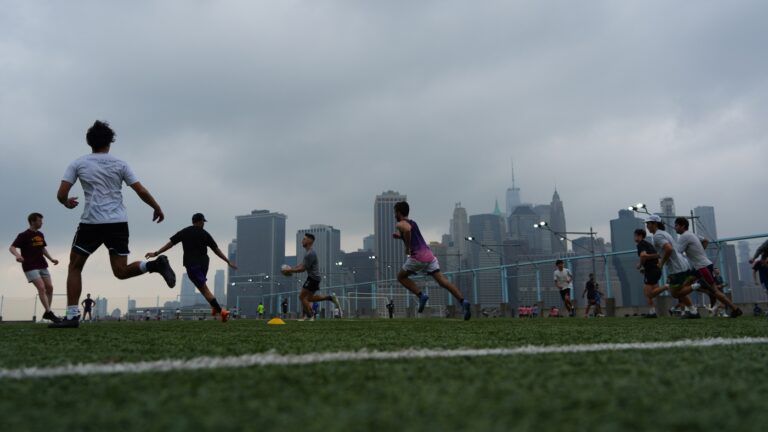
Josh Hubbard’s Unexpected Touchdown and Knee Injury: A Complex Interplay of Triumph and Adversity
An Overview of the Incident
Cincinnati Bengals defensive end Josh Hubbard’s remarkable touchdown reception in the team’s game against the Cleveland Browns on Monday Night Football was a bittersweet moment. While Hubbard’s effort exemplified the team’s resilience and determination, tragedy struck as he sustained a significant knee injury during the play. The incident has sparked a wide range of reactions, highlighting the complexities surrounding sports-related injuries and the accompanying emotional toll.
Hubbard’s Triumphant Moment Amidst a Challenging Season
Hubbard’s touchdown was an unexpected highlight in what has been a challenging season for the Bengals. Despite being primarily known for his defensive skills, Hubbard displayed remarkable athleticism by intercepting a pass and returning it for a score. The touchdown energized the Bengals and gave them a glimmer of hope in a game that they ultimately lost.
The Devastating Injury and Its Impact
However, Hubbard’s triumph was short-lived. As he attempted to celebrate his touchdown, he planted his right knee awkwardly, resulting in a tear of the anterior cruciate ligament (ACL). This injury is a significant setback for Hubbard, potentially sidelining him for the remainder of the season and beyond.
The Emotional Toll on Hubbard and the Team
The injury has dealt a heavy blow to Hubbard both physically and emotionally. After the game, he expressed his disappointment and frustration, acknowledging that the injury could have severe implications for his career. The Bengals organization and his teammates have rallied around Hubbard, offering support and encouragement during this difficult time.
Examining the Complexities of Hubbard’s Injury
Hubbard’s injury raises questions about the inherent risks associated with playing professional sports. While athletes may be well-trained and conditioned, injuries can occur unexpectedly even during routine plays. The emotional impact of serious injuries can be profound, affecting both the athlete’s physical and mental well-being.
Physiological Factors Contributing to Hubbard’s Injury
Several physiological factors may have contributed to Hubbard’s injury. These include:
Football-Specific Risk Factors for Knee Injuries
In addition to physiological factors, football-specific risk factors may also have played a role in Hubbard’s injury. These include:
Critical Analysis of Injury Prevention Strategies
The NFL has implemented various injury prevention strategies to reduce the risk of knee injuries. These include:
Despite these efforts, knee injuries remain prevalent in football. Researchers and medical professionals continue to explore new strategies to further reduce the risk of these debilitating injuries.
Conclusion
The injury sustained by Josh Hubbard is a sobering reminder of the complexities of sports-related injuries. While Hubbard’s touchdown celebration was a moment of triumph, it was quickly overshadowed by the adversity of the knee injury. The incident raises important questions about the inherent risks associated with playing professional sports, the physical and emotional toll of serious injuries, and the need for ongoing injury prevention strategies. As Hubbard embarks on his recovery journey, the Bengals organization and fans alike will undoubtedly offer him unwavering support.



